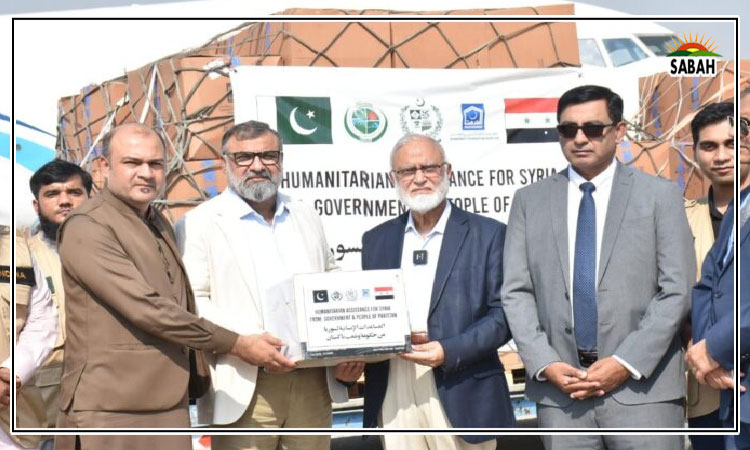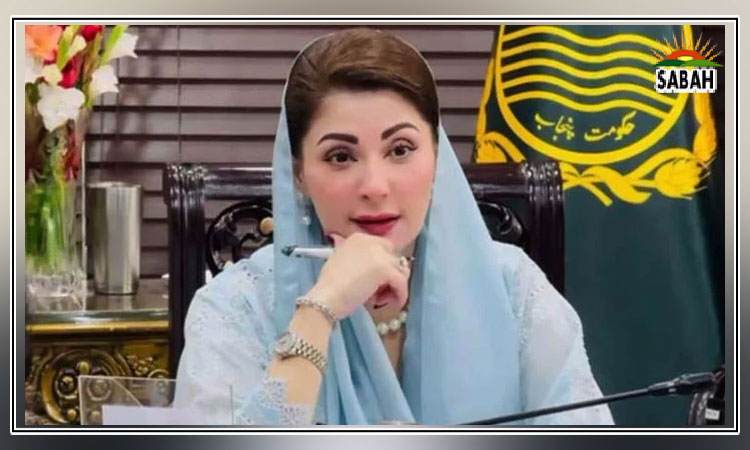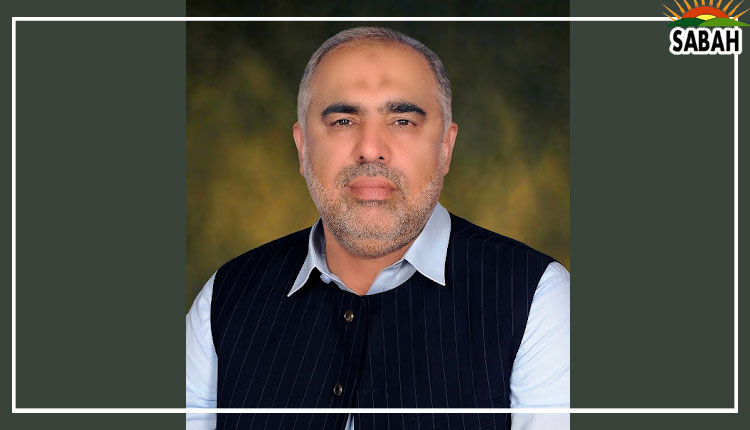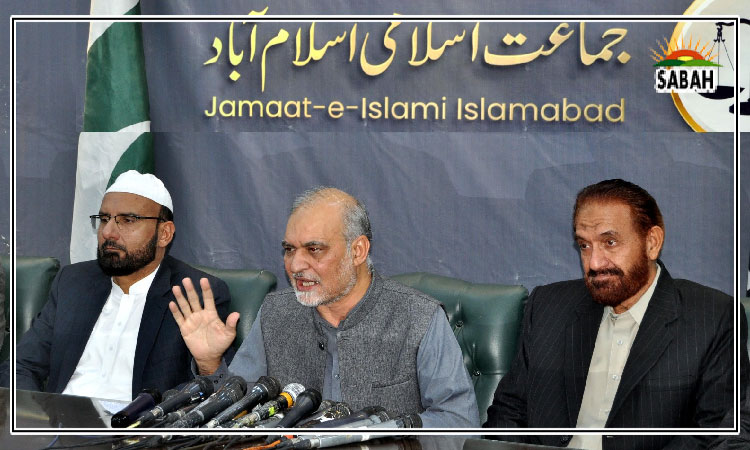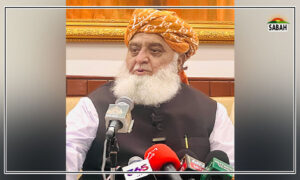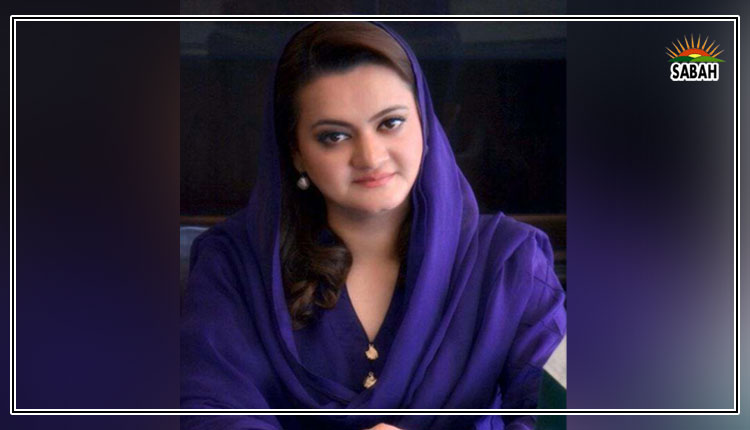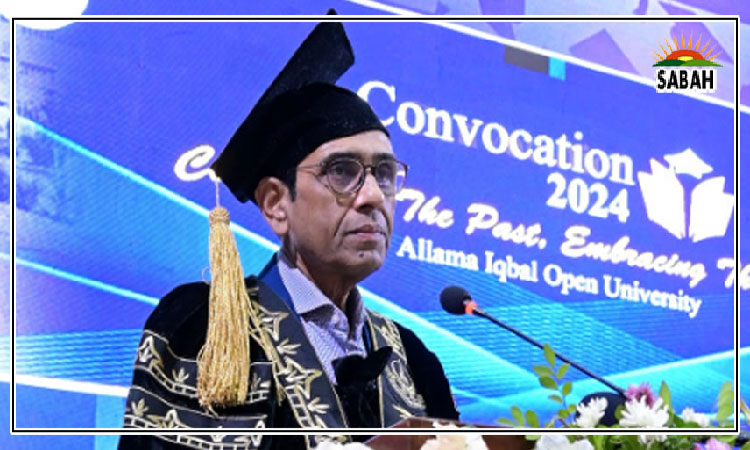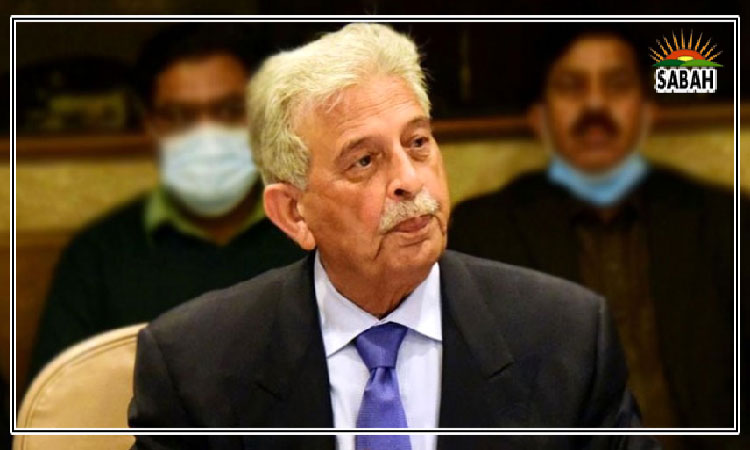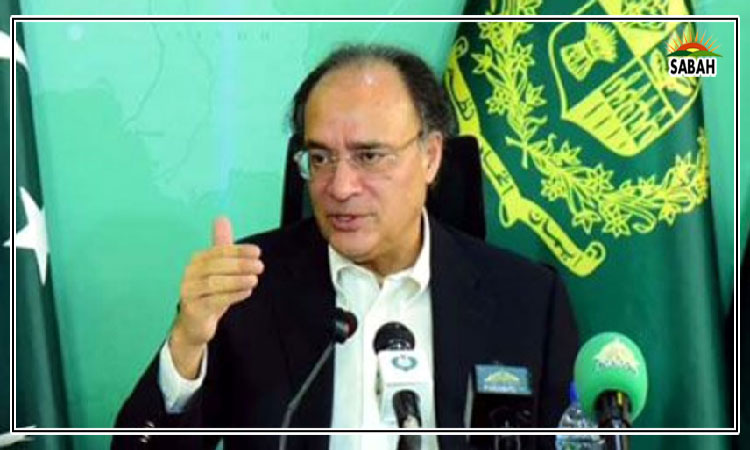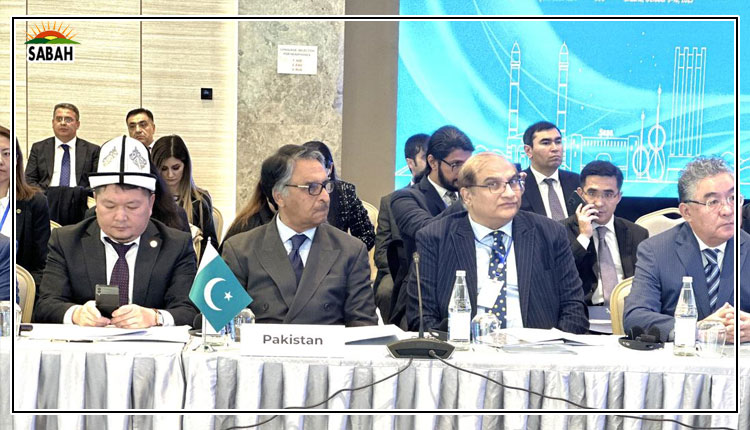Jalil Abbas Jilani reaffirms Pakistan’s resolve to collective progress & prosperity of the people of the region
BAKU, Oct 10 (SABAH): Caretaker Foreign Minister Jalil Abbas Jilani has called for promoting dialogue and diplomacy instead of accentuating conflicts and divisions in the world.
This was stated by Jalil Abbas Jilani while addressing the Twenty-Seventh ECO Council of Ministers in Azerbaijan on Tuesday.
Highlighting the need for peace and respect for cultural and civilizational diversity in the world, he emphasized on putting an end to wars and illegal occupations to achieve this goal.
The Foreign Minister said Pakistan not only provides avenues for regular interaction, close cooperation, and strengthening of ties in the region but also remains committed to pursue the initiatives envisaged by the Organization in future.
He reaffirmed Pakistan’s resolve to collective progress and prosperity of the people of the region.
The Foreign Minister underscored the need to increase regional trade, strengthen connectivity and promote tourism in line with ‘ECO Vision 2025’.
He urged all ECO members to prioritize the early operationalization of ECO preferential Trade Agreement to benefit from true potential of enhanced economic interaction and trade linkages in the region.
Speaking about the threat of climate change, the Foreign Minister reiterated the need to develop a time-bound, well-funded, and strategically robust mechanism within the region to tackle environmental issues. He also stressed on timely transition to green economy for a safe environment and future.
About Afghanistan, the Foreign Minister said constructive engagement with the interim Afghan government is the only key to sustainable peace and progress in that country which is crucial for peace and stability of the whole region. He added that Pakistan looks forward to working closely with other ECO member states towards this end.
Jalil Abbas Jilani said that it is a matter of great privilege for me to represent Pakistan at the august Twenty Seventh ECO Council of Ministers Meeting in the city of Shusha. I am delighted to be here at Shusha, the cultural capital of Azerbaijan. On behalf of the Pakistan delegation and on my own behalf, I would like to convey our profound gratitude to the Government of the Republic of Azerbaijan for hosting the event and for the warm hospitality extended to my delegation, he said.
“I want to express our profound appreciation for our distinguished host, the Foreign Minister of Azerbaijan, Jeyhun Bayramov, for having ably led the Organization during his Chairmanship. I would also like to extend my appreciation to Ambassador Khusrav Noziri, the Secretary General of the ECO, for his successful stewardship of this Organization” he said.
He said that Pakistan attaches great importance to ECO. Not only does it provide avenues for regular interaction, close cooperation, and strengthening of ties in our region, it also continues to hold promise of a brighter future for our succeeding generations in a rapidly shifting geopolitical order. He said that Pakistan has always played an active role in the advancement of the ideals of the ECO, and remains committed to pursue the initiatives envisaged by the Organization, in the future as well.
“We wish to see ECO transform our region into an exemplary bloc that stimulates regional growth, promotes collective development, and encourages shared progress. And more importantly, it remains an integral factor to promote global peace, stability and prosperity” Jalil Abbas Jilani said.
He said that the ECO region, comprising 8 million square kilometers and half a billion people, representing 15% of the world population, has a share of only about 2% in the global trade. Our intra-regional trade is less than 8% of the region’s aggregate trade and is in stark contrast to other regional groupings such as the EU where intra-regional trade stands above 70%. We need to change this dynamic and make determined efforts to support regional trade integration.
Let me recall here the “ECO Vision 2025”, adopted during the 13thECO Summit in Islamabad which aptly provided us a roadmap towards:
a) increasing intra-regional trade;
b) strengthening regional connectivity;
c) operationalizing major ECO transport corridors;
d) coordinating efforts to achieve energy security and sustainability;
e) increasing inter-regional trade;
f) increasing contribution of ECO countries in the global trade;
g) promoting tourism.
He said that to seize the moment, we need to make concerted efforts to meet intended targets and anticipated goals, as enunciated in the ECO Vision 2025 and set a realistic time frame for their completion to reap tangible benefits.
He said that the geo-political significance of our region is enormous. Historically, the Silk Route, comprising the modern-day ECO region, has been at the crossroads of travellers and tradesmen, and served to join the Eastern and Western civilizations since antiquity.
“We stand at the crossroads of North-South and East-West hemispheres. Moreover, world’s strategically significant transport corridors pass through this region including International North South Transport Corridor (INSTC), China-Pakistan Economic Corridor (CPEC) or the Belt and Road Initiative (BRI)” Jalil Abbas Jilani said.
“Let me reiterate here that the key to unlock the geo-economic potential of the ECO region lies in connectivity. We can achieve this objective by taking three vital steps: (i) development of road and rail projects, (ii) liberalization of visa regimes and (iii) simplification of border procedures. Such steps will not only address our regional requirements of energy and enhanced intra-regional trade, but enable us to act as a bridge to create mutual inter-dependencies for sustainable growth” he said.
Meanwhile Pakistan and Turkiye have vowed to further strengthen and deepen all-round cooperation in diverse fields.
The resolve was made during a meeting between Foreign Minister Jalil Abbas Jilani and his Turkish counterpart on the sidelines of 27th ECO-COM in Azerbaijan on Tuesday.
During meeting, they reviewed entire gamut of strategic partnership and agreed to maintain upward trajectory of fraternal relations between two countries.
Foreign Ministers of Pakistan and Turkiye reaffirmed steadfast support on all core issues, particularly in trade, investment, defence, education culture, agriculture, science and technology.


